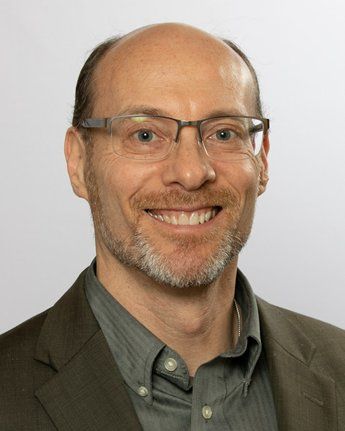Themes and Hot Topics at ADCES 22, with Gary Scheiner, MS, CDE
Gary Scheiner, MS

The 2022 meeting of the Association of Diabetes Care and Education Specialists (ADCES) is the first in-person instance of the meeting since 2019. With more than 2500 attendees, the event not only showcased the latest advances in diabetes management for those in the field, but also provided an opportunity to connect with colleagues that did not exist during the height of the COVID-19 pandemic.
At the 4-day meeting attendees could attend more than 100 individual sessions dedicated to topics ranging from management of CKD to eliminating weight stigma and even suicide prevention issues. Held in Baltimore, MD, the ADCES 2022 annual meeting epitomized the unique aspects of the organization, and the profession, that has allowed diabetes care and education specialists to advance the field of diabetes management. While on-site the ADCES’s first in-person meeting in 3 years, Endocrinology Network caught up with former ADCES diabetes educator of the year Gary Scheiner, MS, CDE, owner and director of Integrated Diabetes Services, to learn more about his reaction to the meeting, its programming, and having an opportunity to collaborate with colleagues.
ACDES 2022 with Gary Scheiner, MS, CDE
Endocrinology Network: With this being the first in-person ADCES meeting since 2019, what has your impression been of this year’s meeting?
Scheiner: The in-person aspect is what makes this special for me. I can do a virtual conference, get the information, and I can follow up with questions virtually if I have to, but there is no replacement for the face-to-face interactions, meeting with colleagues, and meeting new people that I get to have here. Also, in the exhibit hall meeting there are opportunities with the various company representatives to learn more about what's new and what's in the pipeline.
Endocrinology Network: What do the themes and topics of discussion at the meeting say about the goals of the ADCES?
Scheiner: Those are valuable areas. I think they are areas that set the diabetes care and education profession apart from others in terms of getting into the trenches and really being able to communicate effectively with patients. I hear so many horror stories about people with all kinds of health conditions who just suffer and don't have good outcomes because of poor communication with their health care providers. If there's one thing a diabetes care and education specialist is good at its communicating. So, it's important because that's sort of our forte.
It's one thing to know something, it's another to communicate effectively, and being able to inspire and motivate others to take good care of themselves. So, I'm proud to be part of that.
Endocrinology Network: How does the diversity of attendees, both in traditional terms and in terms of titles and educational background, improve the ability of the ADCES?
Scheiner: Diversity is so important. It's another kind of trademark of this profession. People from so many different walks of life, whether somebody is from the mental health field, nursing, nutrition, dentistry, exercise, we have certain things in common, but we all have to learn from each other.
A good diabetes care provider has some skills in a lot of different areas. You have to know a little bit about the emotional side of it and be able to address it. You have to understand nutrition, at least to a certain extent. You have to be able to counsel patients on exercise and sports and so on and you also have to understand the medication side. So, having a diverse membership and diverse attendees at a meeting like this, it speaks volumes because we have a chance to learn from each other, collaborate, and expand our skill sets.
Endocrinology Network: As diabetes care and education specialists are tasked with learning more and more, is there any concern they may become overburdened in a similar manner to endocrinologists and primary care providers?
Scheiner: It's an interesting question. I mean, you have a breadth of knowledge and expertise that is forever expanding. I still think it pales in comparison to what an endocrinologist and a primary care physician have to do. It's a fraction, but I think it highlights the need for specialization in diabetes.
The fact that we can focus on just diabetes-related issues, hopefully, we're going to be able to stay on top of that. If you told any physician that you're only going to treat one condition, they could do a great job and they could really hone in on it, but they're asked to treat so many different conditions.
In our case, we're sticking to diabetes. In my case, I work primarily with type 1 diabetes. Those are mainly the areas that I focus on. I know there are other providers who focus almost exclusively on a type 2 diabetes space. So, I think there is some specialization developing even with the certified diabetes care and education specialist community and I'm optimistic that because we're just working in the diabetes space that we'll be able to able to keep up.